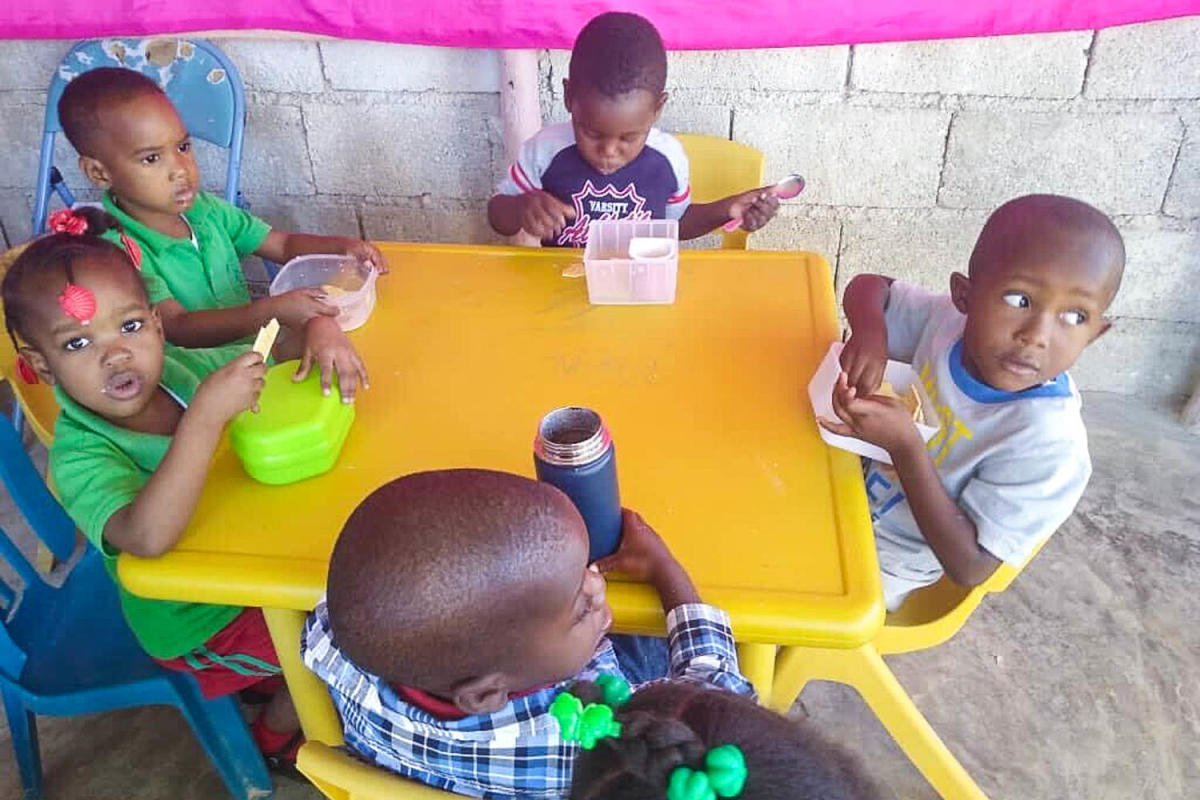“Unfortunately, due to the crisis, we can’t function. I have a school, but the school has almost been destroyed,” said Vernet, 43. “Out of the students we have now, some are orphans,” and the others are children of parents who could not afford to flee the violence.
The school has become more than a place of learning; it is now a sanctuary for many children who have lost their homes and families to the violence and the chaos.
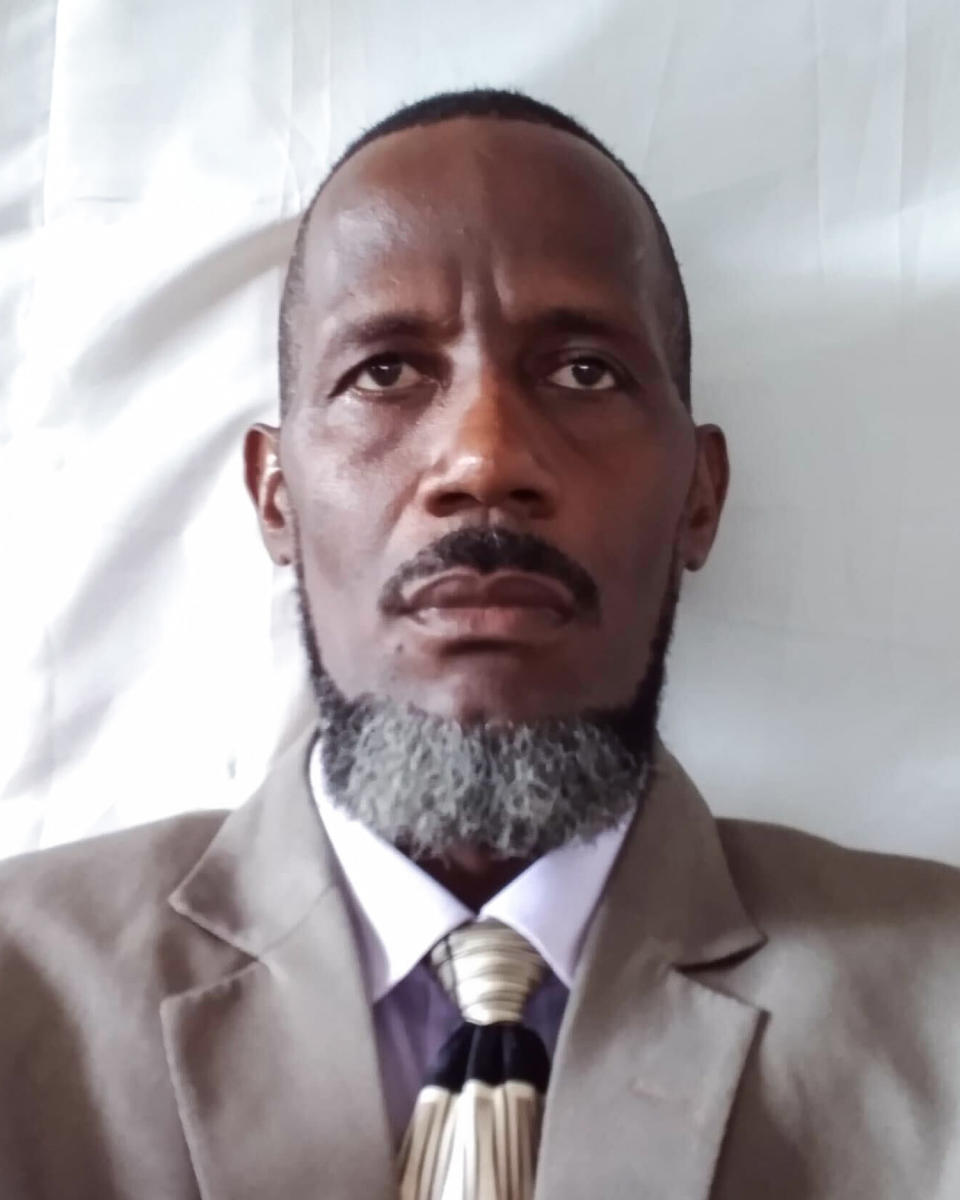
Lemer Celest School is a private school for children in pre-kindergarten to the sixth grade. Vernet, the school’s director, said that since January 2022, he has stopped collecting fees so local children could have a safe place to go.
“The kids whose parents can afford to pay left the town,” he said. “The ones that are here can’t afford to pay the tuition.”
The school serves about 60 children and maintains an open-door policy, as highlighted by a third grader named Princile, 7, who understands this well: “They don’t turn people away because of money.”
For children who are orphans or whose parents are homeless, Vernet has made arrangements for them to sleep in the church, providing them with sleeping bags.
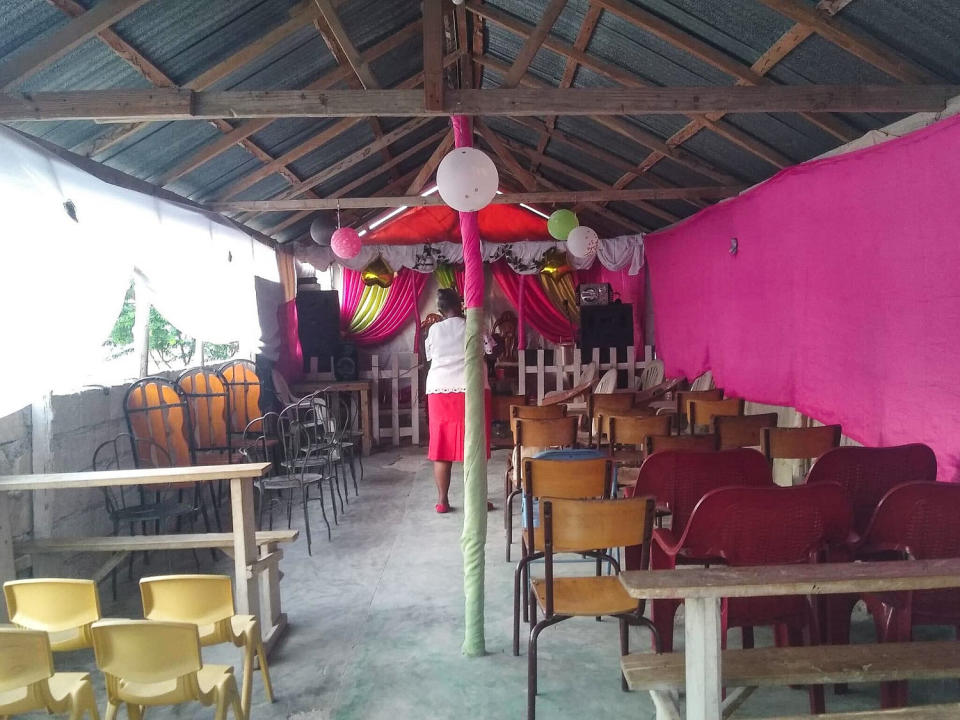

“Some of those kids left to go live with an uncle or an aunt, and every now and then, I follow up with them and share some food, etc.,” he said. “If they have absolutely nowhere else to go, I try to keep them here with me.”
Vernet said many of the children have witnessed unspeakable horrors and, before coming to the church, lived in constant fear of the violence that ravaged their community.
Elie, a 9-year-old fifth -grader who said he dreams of becoming a general medicine practitioner, said:
“They are always shooting. There’s a war between gangs and the police. I can hear them and see them at school.”
On March 4, Haiti declared a state of emergency following coordinated attacks by gangs on government institutions, the airport and prisons, resulting in the release of thousands of prisoners. According to the nonprofit organization ACAPS, formerly the Assessment Capacities Project, which provides data to humanitarian groups, gangs now control about 80% of the geography of Port-au-Prince.
Vernet said his own home in Canaan was burned down on Jan. 21, 2022, forcing him and his family to live in the church, close to the school. Despite the hardships, Vernet has remained committed to his community, providing food and shelter for those in need. Princile said he and his classmates sometimes got to eat “plantains, rice or spaghetti” for lunch.
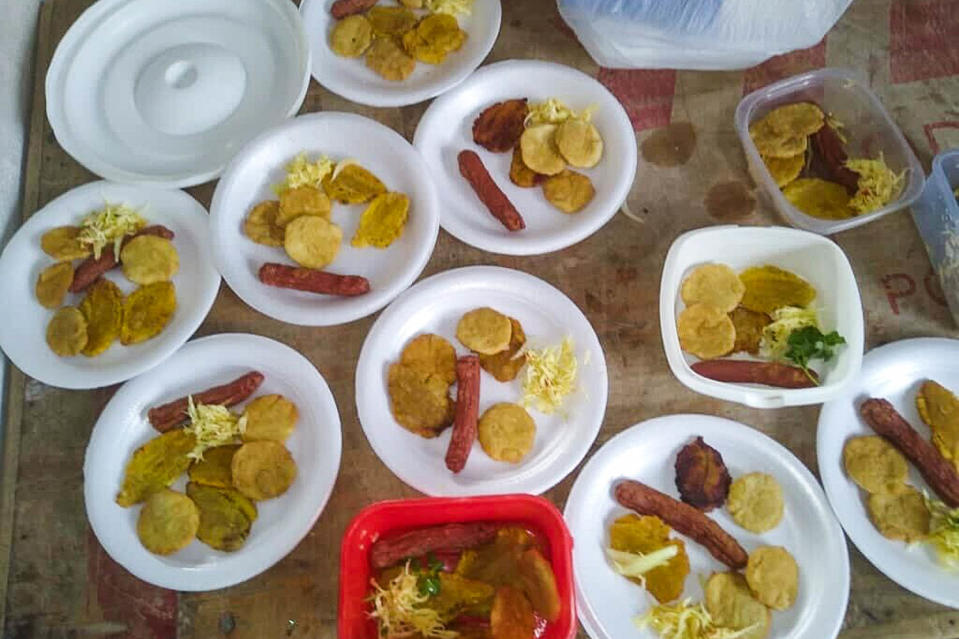

For children like Elie and Princile, Vernet’s school is a place of refuge. “When there are shootings, we go to the pastor’s church and sleep there,” Elie said.
Vernet’s efforts were not without their challenges.
“We have a lot of people. Unfortunately, we don’t have any resources,” he said. “When possible, I buy a bag of rice. I could have used it for my own family, but I would rather share it with the people in the community and give each a can.”
The children under Vernet’s care, many of whom are orphans or come from single-parent households, say they have found solace and support in the church and the school. They spend their weekends playing on the school playground or in front of the church while Vernet, his team of three teachers and his wife teach them, feed them and strive to protect their innocence amid the turmoil.
“We try our best to protect them so the crisis in Haiti won’t completely affect them,” Vernet said. “If you see them right now, they are in a lot of distress. The images I would rather show are pictures of when they are happy when we are teaching them. You’ll see that they are kids. Now, if you take a picture of them, you’ll see distress and pain.”
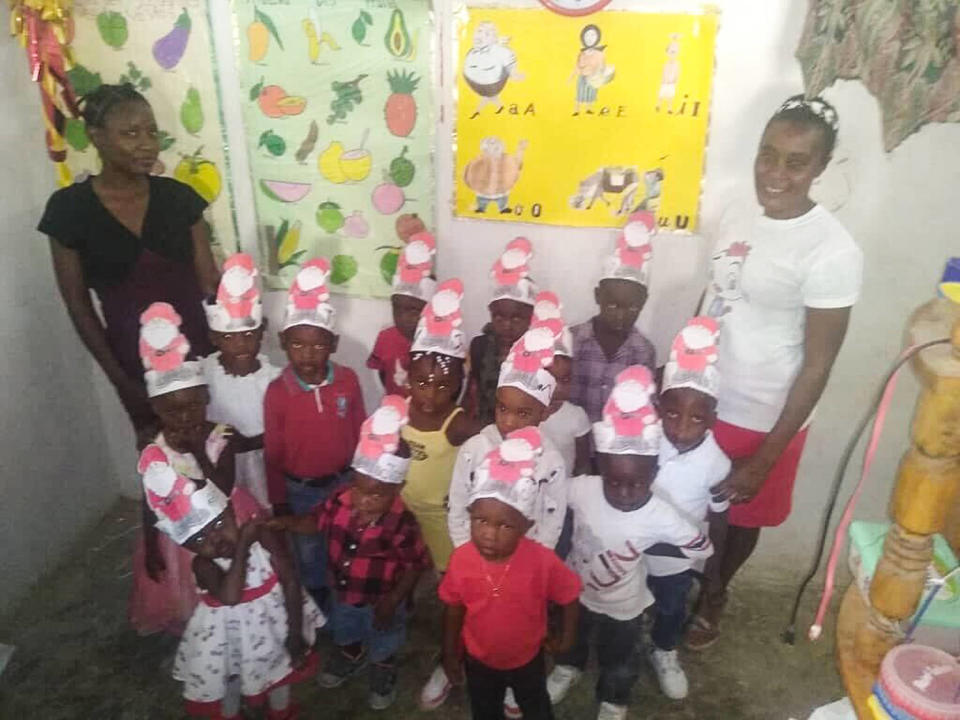

Vernet said he has struggled to receive aid from global humanitarian organizations.
“Personally, I’ve written letters to many organizations for aid, but they never respond,” he said. “Yes, they do help people; I hear it on the radio all the time, but personally, I have not gained anything.”
As the crisis in Haiti rages on, Vernet said, he remains resolute in his mission to help the children of Canaan. He said that when the gang violence started, most people fled, but that as a leader, he resisted. “Although it is scary, even if it’s under a tent, I am committed to staying and won’t leave the town,” he said.
This article was originally published on NBCNews.com
